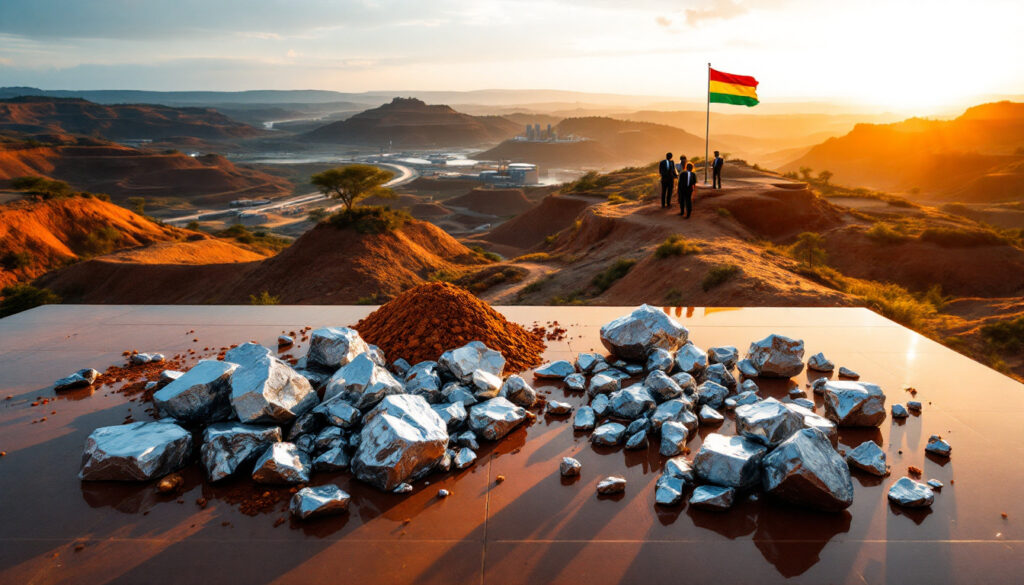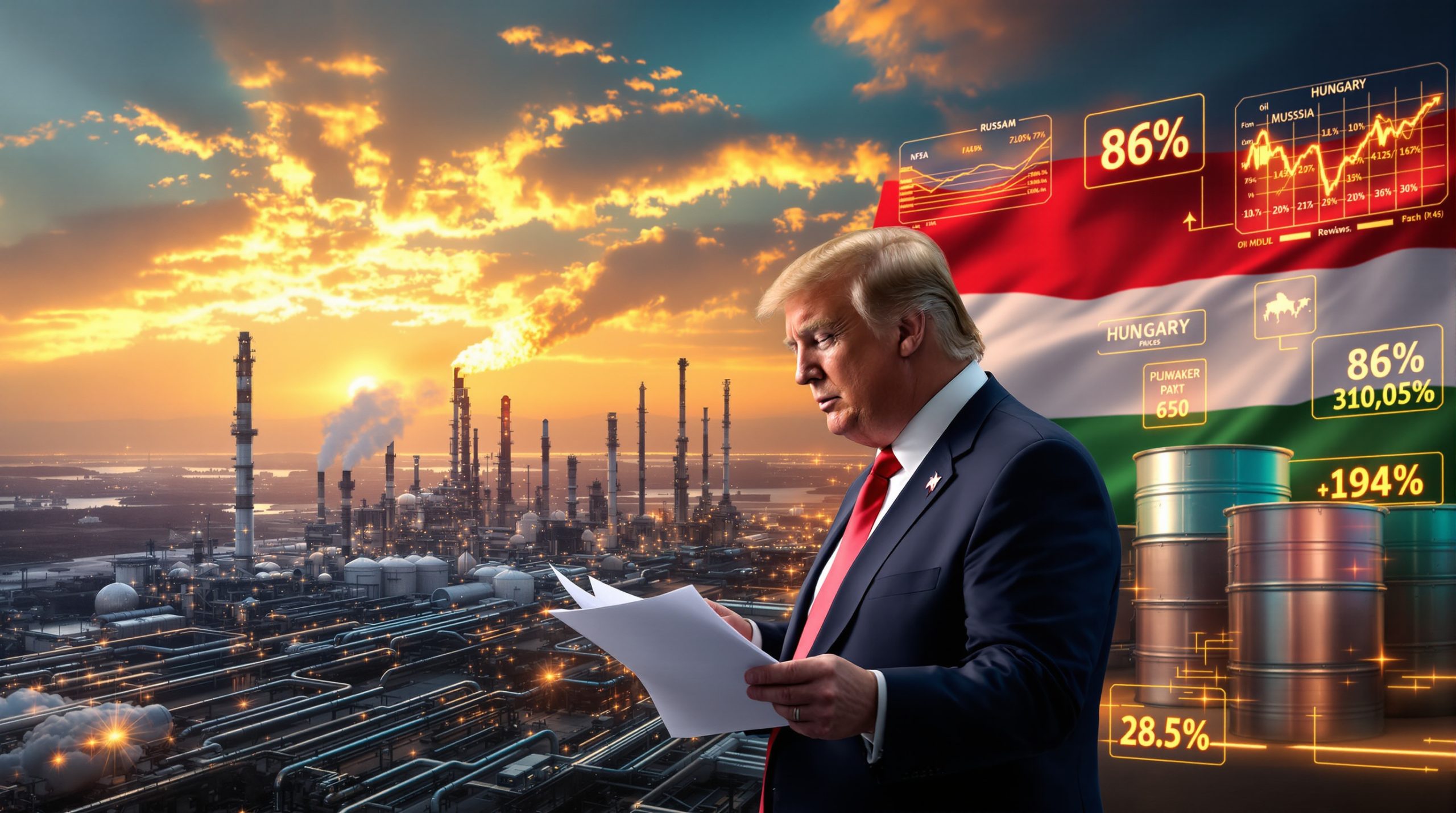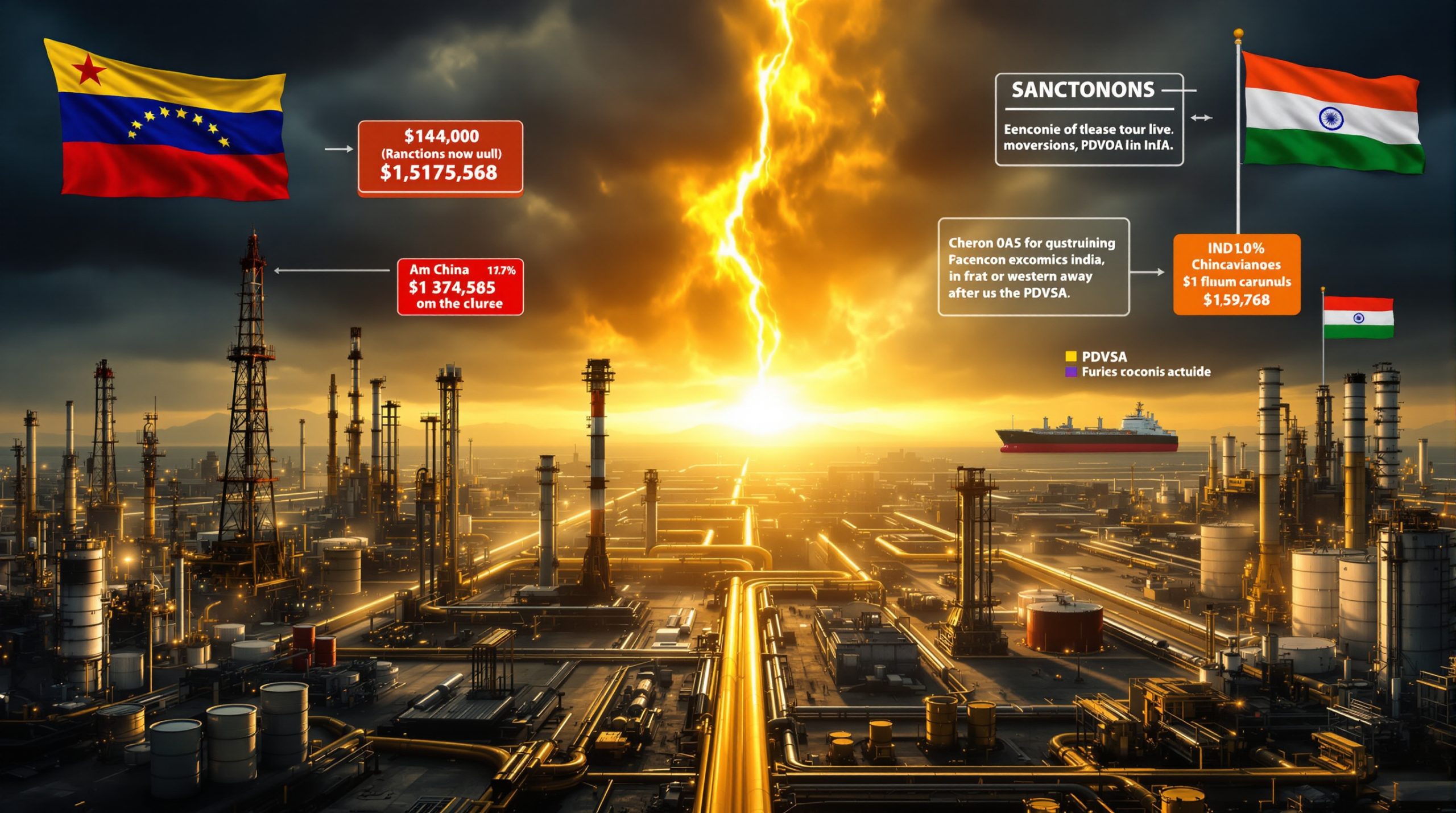Guinea Initiates Process to Cancel EGA's Mining License: A Deep Dive
Guinea's government has formally begun proceedings to withdraw the mining license of Guinea Alumina Corporation (GAC), a subsidiary of Emirates Global Aluminium (EGA), marking a significant development in the country's natural resource management. This move follows operational suspensions that began in October 2024, raising questions about Guinea's investment climate and the global aluminum supply chain.
Recent Dispute Timeline with Emirates Global Aluminium
The conflict between Guinea and EGA developed rapidly over several months. Initial operations suspension occurred in October 2024 amid growing tensions over customs duties compliance. By May 2025, Guinean authorities had sent formal notification of their intent to withdraw GAC's mining license, shifting the dispute into a new, more serious phase.
A senior Guinean mining official confirmed the government's position, stating: "We have initiated the withdrawal of GAC's mining licence. A notification has been sent to this effect." This declaration leaves little doubt about the government's intentions, though the complete cancellation process may take several months to finalize.
The suspension and subsequent license withdrawal notification represent the culmination of deteriorating relations between the Guinean government and EGA, with negotiations apparently failing to resolve the core issues.
Regulatory Concerns Raised by Guinean Authorities
At the heart of the dispute are allegations of customs duties compliance violations, specifically relating to the amended 2022 Mining Code. Guinea's government claims GAC failed to meet updated regulatory requirements, particularly regarding export duties and local content provisions.
Article 148 of Guinea's mining regulations provides the legal foundation for this action, permitting license termination for material breaches of contractual obligations. This regulatory framework was strengthened in recent years as part of Guinea's broader resource sovereignty initiatives.
The dispute bears similarity to the 2023 Simandou iron ore license renegotiation involving Rio Tinto and the Winning Consortium, though that situation ultimately resulted in revised terms rather than outright cancellation.
Guinea's regulatory authorities have increasingly focused on ensuring mining companies' full compliance with tax obligations, viewing this as essential to maximizing the national benefit from natural resource extraction. This approach mirrors similar situations like the recent VAT refund suspension cases in other resource-rich nations.
Who is Emirates Global Aluminium and What's at Stake?
EGA's Strategic Presence in Guinea
Emirates Global Aluminium, through its GAC subsidiary, operates one of Guinea's largest bauxite extraction operations, with facilities capable of producing 12 million metric tons of bauxite annually. This represents approximately 12% of Guinea's total bauxite exports (based on 2024 figures), making it a significant contributor to national export revenues.
Since establishing operations in 2017, EGA has invested approximately $1.4 billion in mine development, rail infrastructure, and port facilities in Guinea. This substantial investment has transformed export capabilities in the Boké region, as acknowledged by former Mines Minister Abdoulaye Magassouba, who noted that "EGA's infrastructure investments transformed Boké's export capabilities."
The company's Guinea operations form a critical link in its vertically integrated aluminum production chain, with Guinean bauxite being shipped to EGA's aluminum refineries in the United Arab Emirates, highlighting the strategic importance of these assets to the company's global operations.
Economic Impact Assessment
The economic footprint of EGA's operations in Guinea is substantial:
- Direct employment of approximately 1,200 workers
- Creation of around 8,000 indirect jobs through contractors and suppliers
- Significant local procurement programs documented in EGA's 2022 sustainability report
- Contribution to Guinea's mining sector, which represents 23% of the country's GDP according to World Bank data
Any disruption to these operations would have ripple effects throughout Guinea's economy, particularly in the Boké region where GAC's activities are concentrated. Local communities dependent on mining-related income would face immediate economic challenges if operations cease permanently.
The loss of export revenue would also impact Guinea's foreign currency earnings, potentially affecting the country's fiscal position and currency stability at a time when many developing economies face significant macroeconomic headwinds.
How Does This Fit Into Guinea's Broader Mining Policy?
Guinea's Resource Nationalism Trends
Guinea's action against EGA fits within a broader pattern of resource nationalism that has characterized the country's approach to its vast mineral wealth in recent years. Since 2020, Guinea has renegotiated four major mining contracts, demonstrating a systematic approach to increasing state control and benefits from natural resources.
Resources analyst Tidiane Barry observed that "Conakry is systematically reclaiming mineral sovereignty," reflecting an expert consensus that Guinea is part of a wider trend of African resource-rich nations reasserting control over their mineral wealth.
This shift toward greater government control has parallels across the continent but has been particularly pronounced in Guinea, which possesses approximately one-third of the world's bauxite reserves yet historically received relatively modest financial returns from extraction.
The 2024 withdrawal of Nordgold's Lefa gold mine permit over environmental violations provides another recent example of Guinea's willingness to take strong regulatory action against international mining companies perceived to be non-compliant with national regulations. This trend reflects broader industry evolution trends seen globally in resource governance.
Regulatory Framework Evolution
Guinea's mining regulatory environment has undergone significant transformation since 2020:
- Bauxite royalties increased from 5% to 7.5% in 2023 fiscal reforms
- The 2022 Mining Code amendments introduced stricter local content requirements, including 40% Guinean representation in managerial roles by 2026
- Enhanced environmental compliance provisions with more severe penalties for violations
- Greater transparency requirements for mining operations
These changes reflect Guinea's determination to maximize the value of its natural resources while addressing historical imbalances in mining agreements negotiated during periods of political instability or with less favorable terms for the host country.
The mining code revisions align with IMF recommendations linking fiscal reforms to mining sector restructuring, suggesting international financial institutions' qualified support for Guinea's approach, provided implementation remains consistent and transparent.
What Are the Potential Outcomes of This Dispute?
Legal and Diplomatic Pathways
EGA has several potential avenues to challenge Guinea's decision:
- International arbitration under the UAE-Guinea Bilateral Investment Treaty (BIT)
- Direct diplomatic intervention by the UAE government
- Administrative appeals within Guinea's legal system
- Negotiation of a settlement agreement
According to arbitration lawyer Amadou Bah, "EGA could invoke UAE-Guinea BIT protections against expropriation," utilizing Article 25 of the ICSID Convention provisions for investor-state arbitration.
Based on historical precedents, the resolution timeline for similar disputes averages 18-24 months if formal arbitration proceedings commence. However, statistics indicate that approximately 65% of African mining disputes settle before reaching final arbitration rulings, suggesting potential for negotiated resolution.
The 2021 Société Minière de Boké $700 million settlement provides a relevant precedent for the scale and structure of potential compensation arrangements if negotiations prove successful.
Renegotiation Scenarios
Rather than complete withdrawal, the dispute could result in contract renegotiation. Several scenarios appear plausible:
- Increased government equity participation in GAC operations
- Enhanced revenue sharing models with higher royalty rates
- More stringent local content and employment requirements
- Additional infrastructure development commitments
The 2019 RUSAL/Friguia alumina plant renegotiation provides a framework for how such revised terms might be structured, with that agreement resulting in resumed operations under modified fiscal and operational conditions.
For EGA, a negotiated solution would likely require concessions but could preserve long-term access to Guinea's high-quality bauxite reserves, which remain strategically valuable for the company's integrated aluminum production model.
How Might This Affect Global Aluminium Markets?
Supply Chain Disruption Analysis
Guinea supplies approximately 25% of global bauxite according to USGS 2024 data, with EGA's Guinea output covering roughly 5% of China's alumina refinery requirements. This positions the GAC operations as sufficiently significant to impact global supply-demand balances if prolonged disruption occurs.
CRU analyst Sofia Fernandez noted that "Any prolonged stoppage could trigger $30/metric ton price spikes" in aluminum markets, highlighting the potential ripple effects through global supply chains.
The current three-month LME aluminum price volatility index (May 2025: 18.7) suggests markets are already incorporating uncertainty regarding Guinea's bauxite supplies, though Chinese ports maintain approximately 45-day buffer stocks that provide short-term insulation against immediate supply shocks.
The market impact pattern may parallel the 2023 Indonesian bauxite export ban, which initially caused significant price volatility before supply chains adjusted through increased production from alternative sources and drawdown of existing inventories.
Industry Response and Adaptation
The aluminum industry is likely to respond to potential Guinean supply disruptions through several mechanisms:
- Acceleration of bauxite projects in Australia, Brazil, and Malaysia
- Increased focus on secondary (recycled) aluminum to reduce primary raw material dependency
- Strategic stockpiling by major consumers and processors
- Vertical integration by refiners seeking supply security
Mining companies with existing Guinean operations face elevated risk perceptions and may implement enhanced compliance measures or pursue contractual revisions to preempt similar regulatory actions.
The situation also strengthens the position of alternative bauxite suppliers with stable political environments, potentially accelerating capital investment in those jurisdictions as aluminum producers seek supply diversification. Such developments parallel the recent Paladin Energy mining halt in other resource sectors, demonstrating the broader impacts of regulatory uncertainty.
FAQ: Guinea's Mining License Cancellation Process
What legal recourse does EGA have against license cancellation?
EGA has multiple legal avenues available. The UAE-Guinea Bilateral Investment Treaty provides protection against uncompensated expropriation and guarantees fair and equitable treatment. This enables EGA to initiate arbitration proceedings through the International Centre for Settlement of Investment Disputes (ICSID).
Under Guinean administrative law, the company can also challenge the procedural basis for the license cancellation, particularly if proper notice and opportunity for remedy were not provided as required by the mining code.
Similar disputes in West Africa's mining sector typically involve a multi-tiered dispute resolution approach, beginning with negotiation before proceeding to formal arbitration only if necessary.
How might this action affect other foreign mining companies in Guinea?
Other mining companies operating in Guinea will likely face increased regulatory scrutiny, particularly regarding customs compliance, tax obligations, and environmental regulations. This could trigger a broad review of existing mining licenses and operating agreements across the sector.
Companies may preemptively propose contract revisions or enhanced compliance mechanisms to demonstrate good faith and avoid similar confrontations with Guinean authorities.
The investment climate for new projects will experience heightened risk perception, potentially increasing the required return threshold for capital allocation decisions or necessitating more robust political risk insurance coverage.
What signals does this send to international mining investors?
The license cancellation proceedings send complex signals to international investors:
"This action reinforces perceptions of elevated sovereign risk in Guinea's mining sector, though it should be viewed in the context of similar resource nationalism trends across commodity-producing nations globally."
Comparative analysis with similar regulatory actions in Chile, Indonesia, and Tanzania suggests Guinea's approach is not unique but represents part of a broader reassessment of state-investor relationships in extractive industries.
For bauxite investment specifically, this may accelerate interest in politically stable jurisdictions despite their potentially higher operating costs or lower ore grades, reflecting a growing premium on regulatory predictability.
Key Considerations for Mining Industry Stakeholders
Risk Assessment Framework
Mining companies operating in jurisdictions with evolving regulatory frameworks should implement robust early warning systems to identify potential compliance issues before they escalate. Key indicators include:
- Changes in customs valuation practices
- Public statements on resource sovereignty by government officials
- Regulatory enforcement actions against peer companies
- Mining code revision proposals or consultations
Contractual protections that may mitigate license cancellation risks include stabilization clauses, clearly defined force majeure provisions, and graduated remedy processes for alleged violations before termination rights can be exercised.
Strategic government relations approaches that emphasize transparency, regulatory compliance, and alignment with national development objectives have proven effective in maintaining operational stability in politically complex environments.
Compliance Best Practices
To minimize regulatory risks, mining companies operating in Guinea and similar jurisdictions should prioritize:
- Proactive customs and tax compliance verification through independent audits
- Regular engagement with regulatory authorities to clarify interpretation of evolving requirements
- Comprehensive documentation of compliance efforts and remediation of identified issues
- Robust community engagement programs that demonstrate tangible local benefits
Transparency initiatives such as adherence to Extractive Industries Transparency Initiative (EITI) standards can build government trust by demonstrating commitment to financial accountability and ethical business practices.
Mining companies might also consider establishing joint compliance monitoring mechanisms with host governments, creating shared responsibility for ensuring adherence to regulatory requirements while providing early identification of potential issues before they escalate to license threats. Understanding the mining permitting guide relevant to each jurisdiction is crucial, as is learning from previous mineral project halt examples.
Disclaimer: This analysis is based on publicly available information and represents an assessment of the current situation as understood. Developments may evolve rapidly, and readers should consult the latest official statements from involved parties for the most current information. The material presented does not constitute investment or legal advice.
Want to Profit From Major Mineral Discoveries?
Discover how significant ASX mineral announcements like Guinea's mining licence cancellations can create exceptional investment opportunities with Discovery Alert's proprietary Discovery IQ model, delivering instant notifications straight to your inbox. Explore historic returns from major discoveries and begin your 30-day free trial today at https://discoveryalert.com.au/discoveries/.




